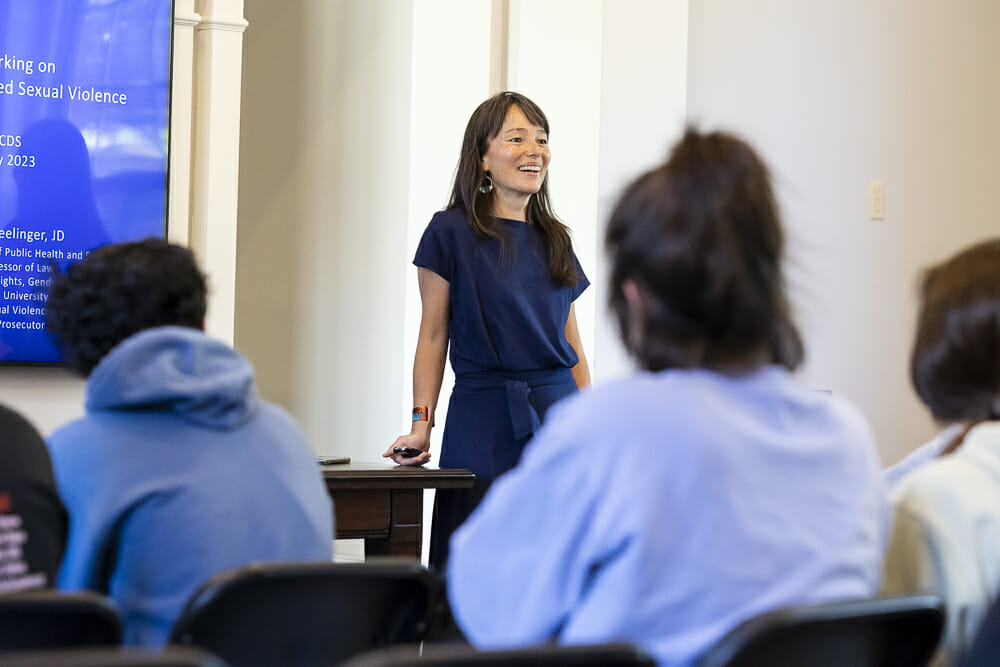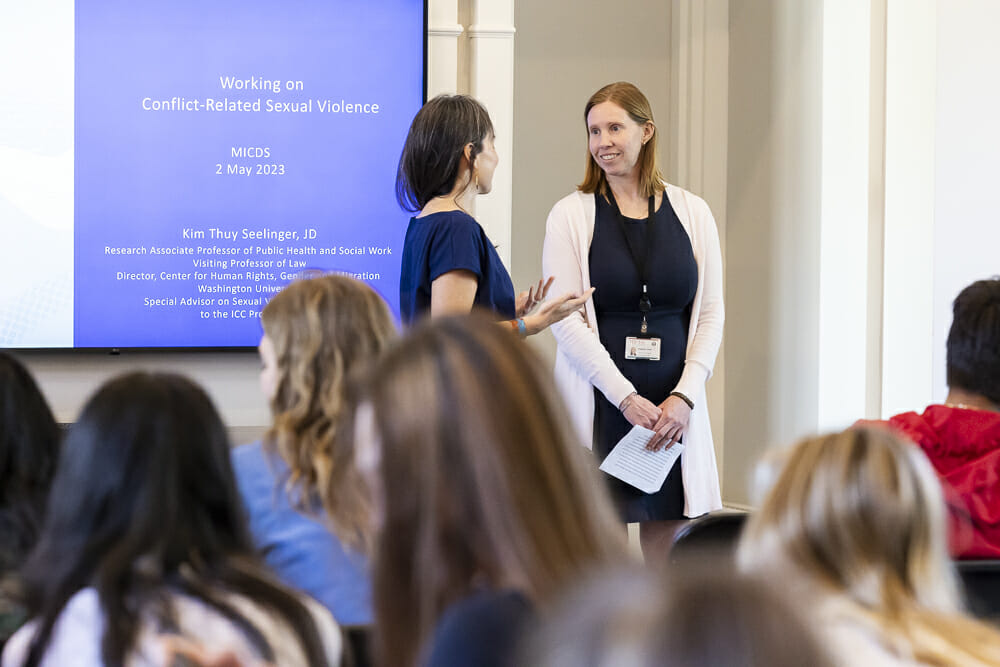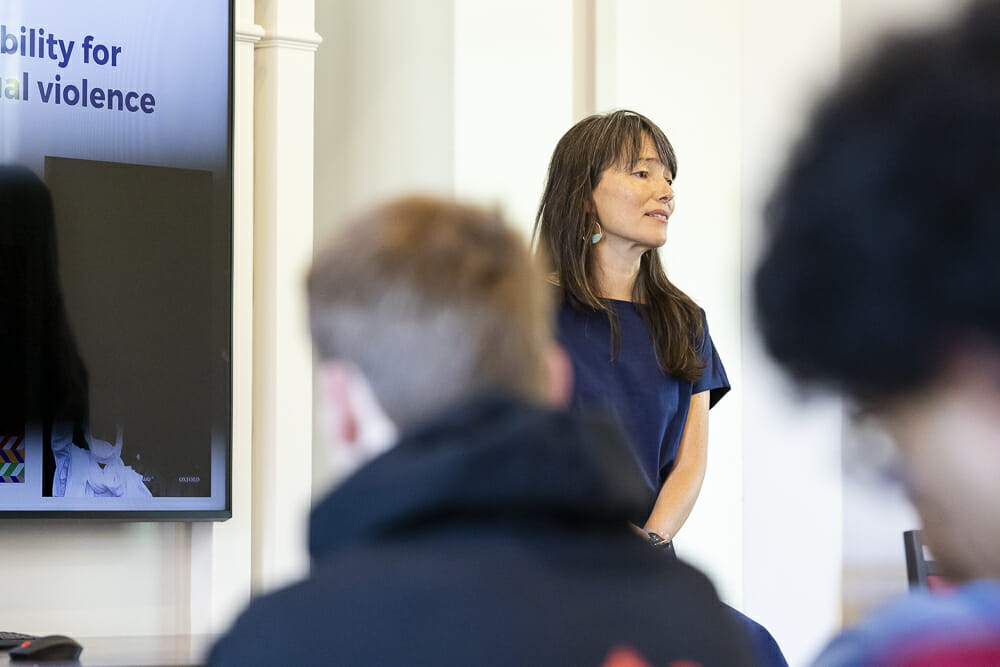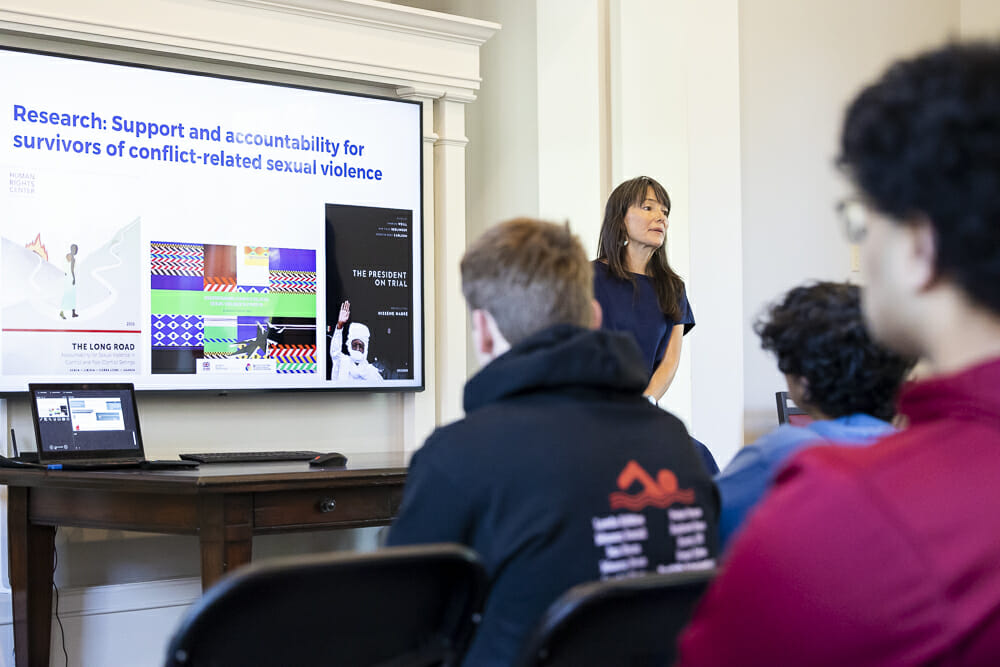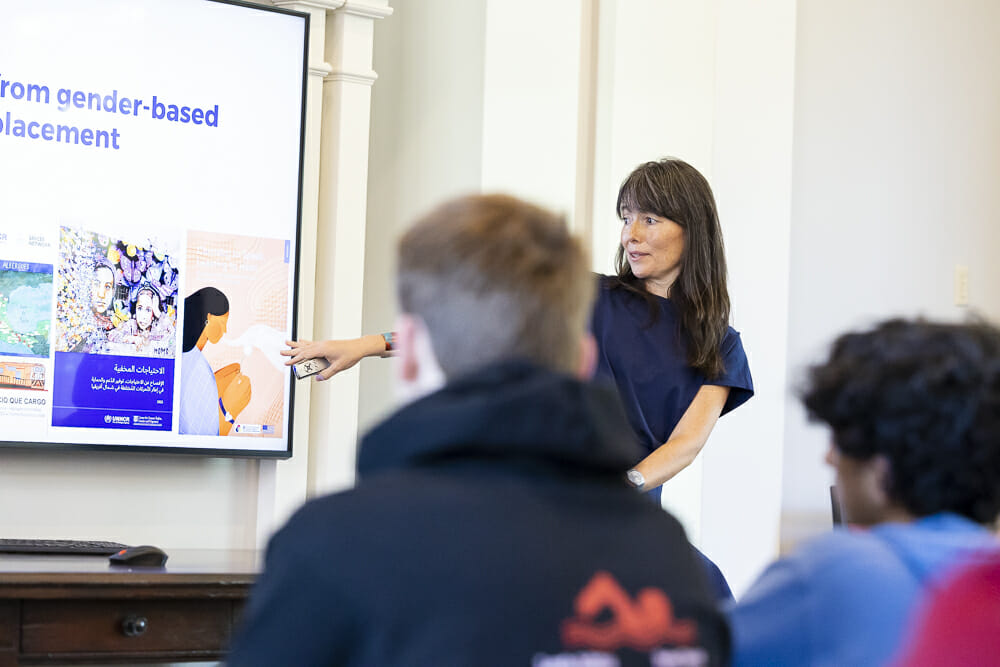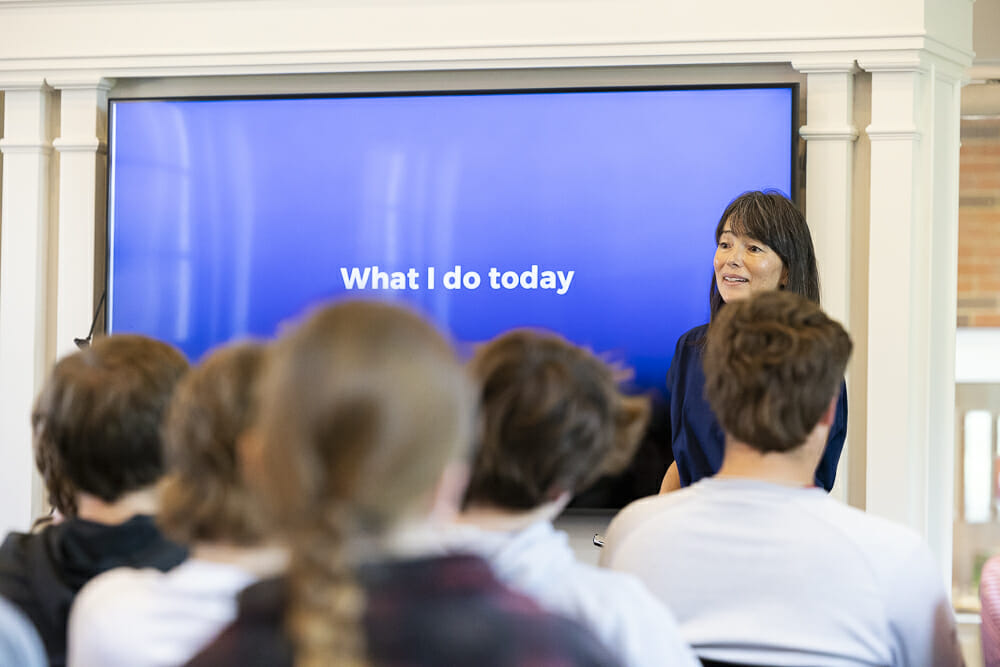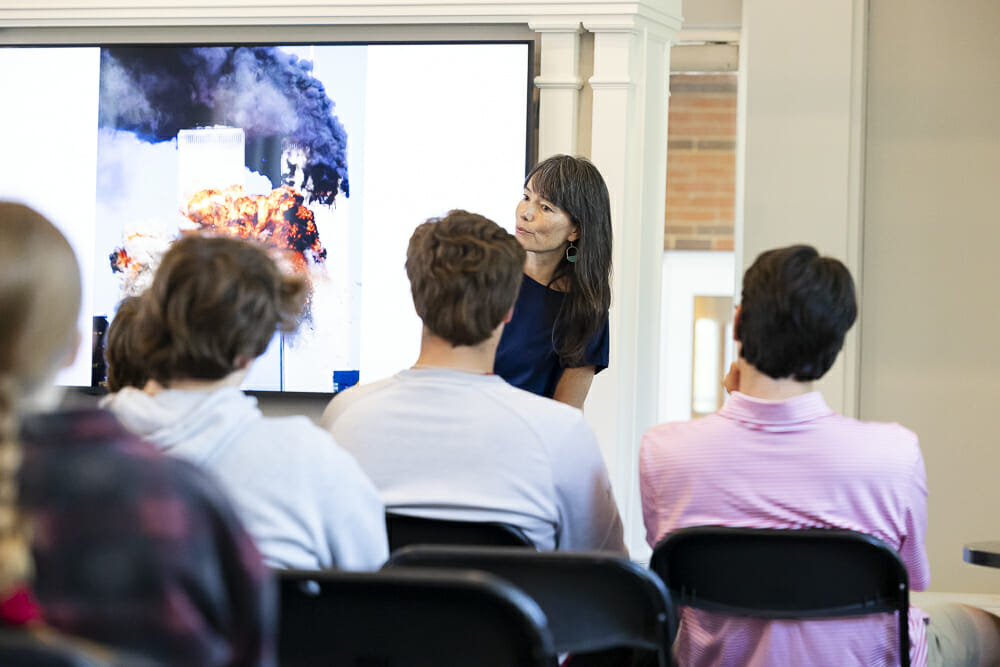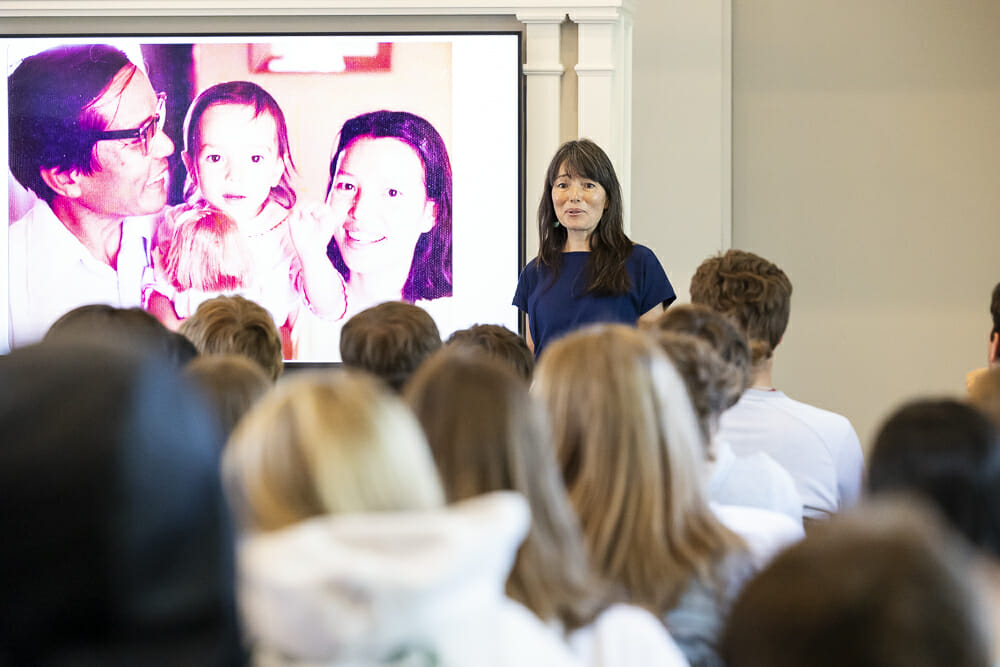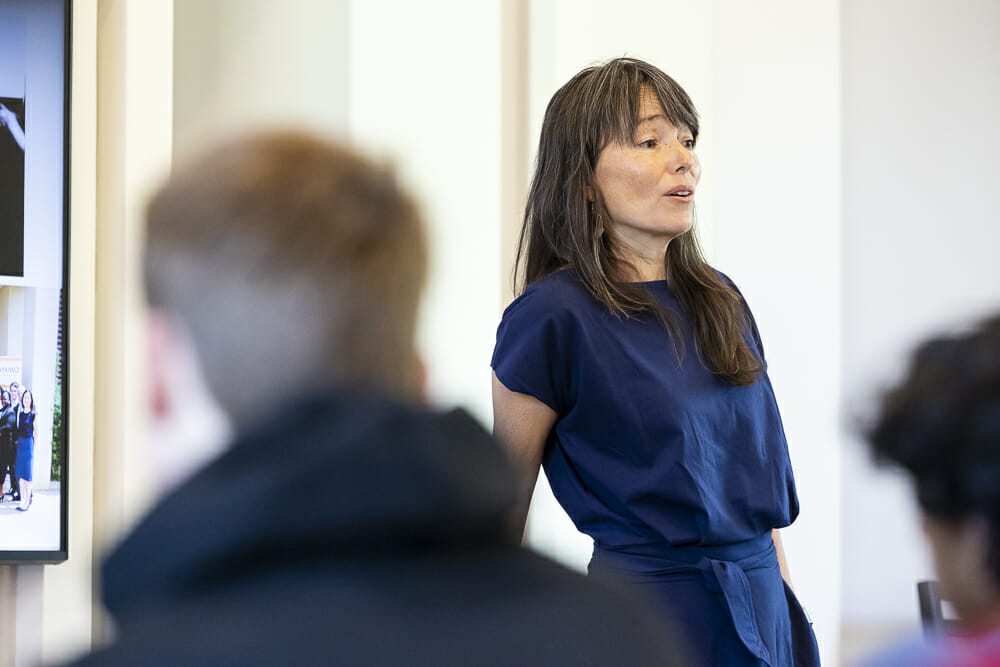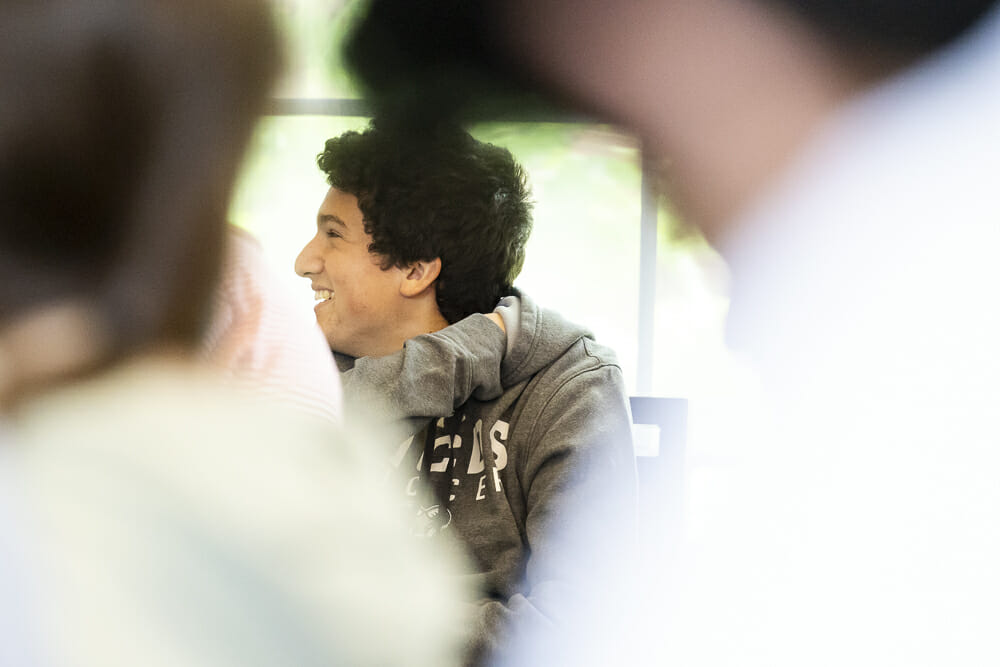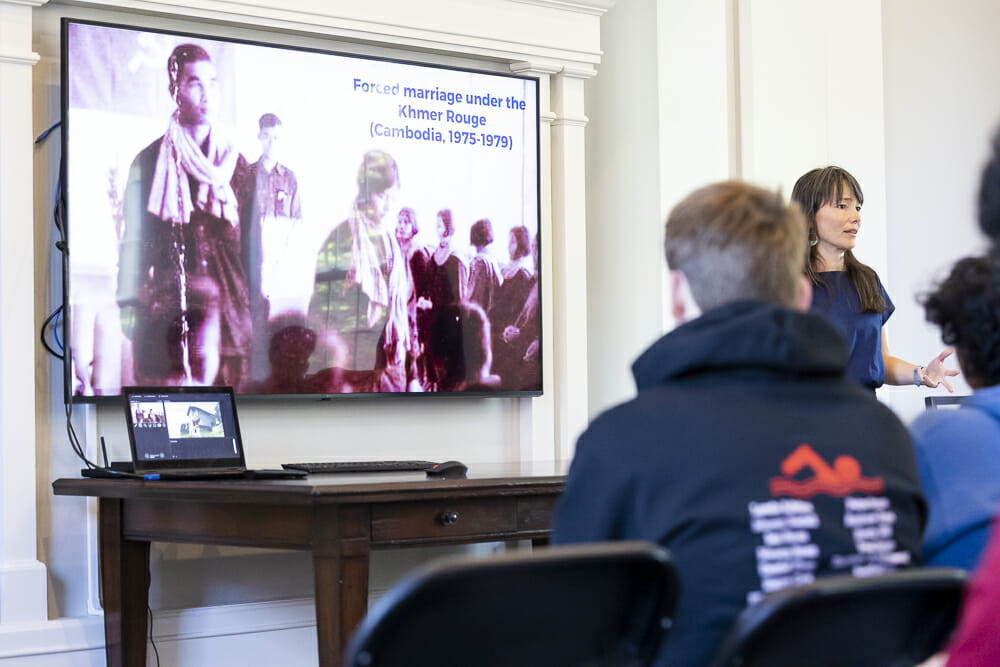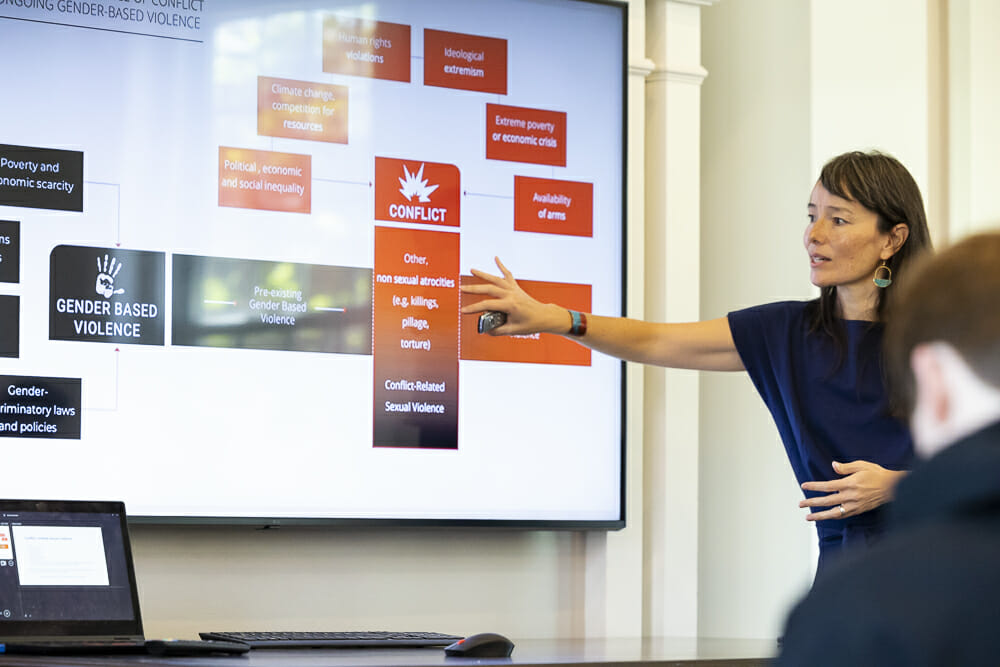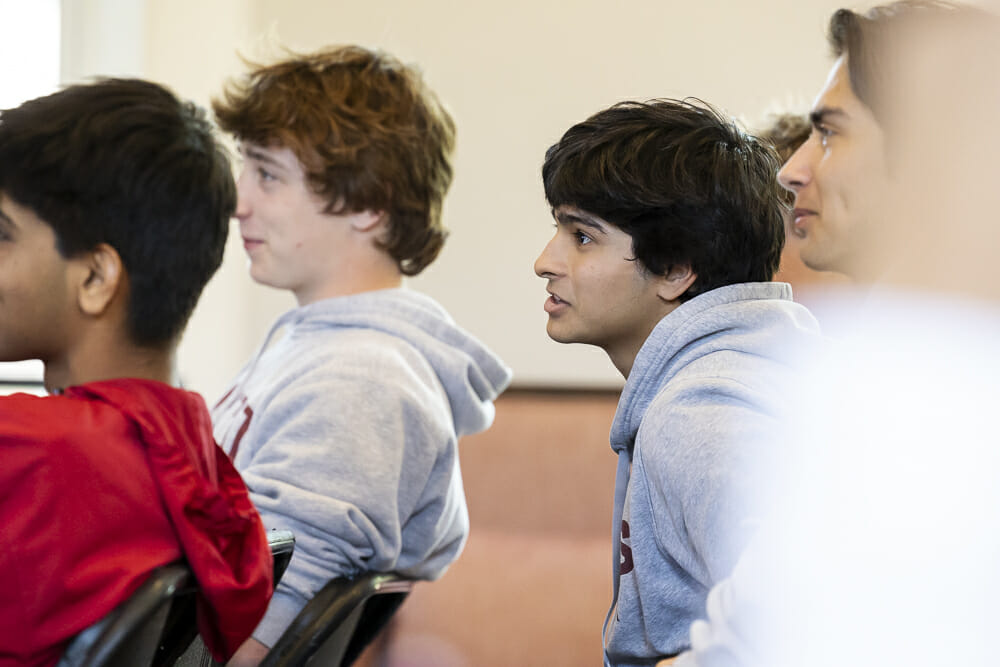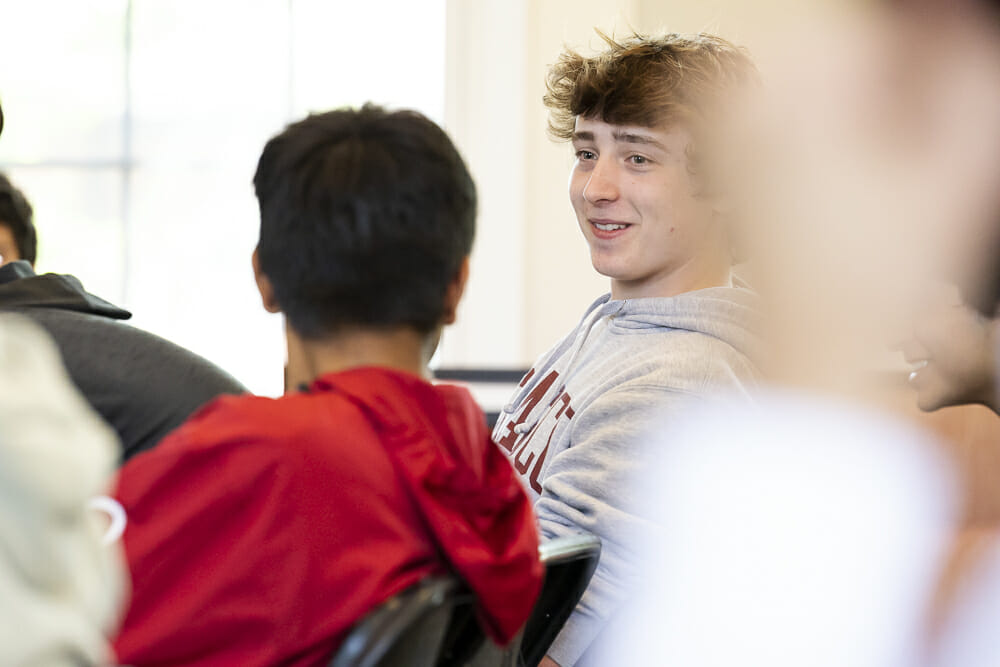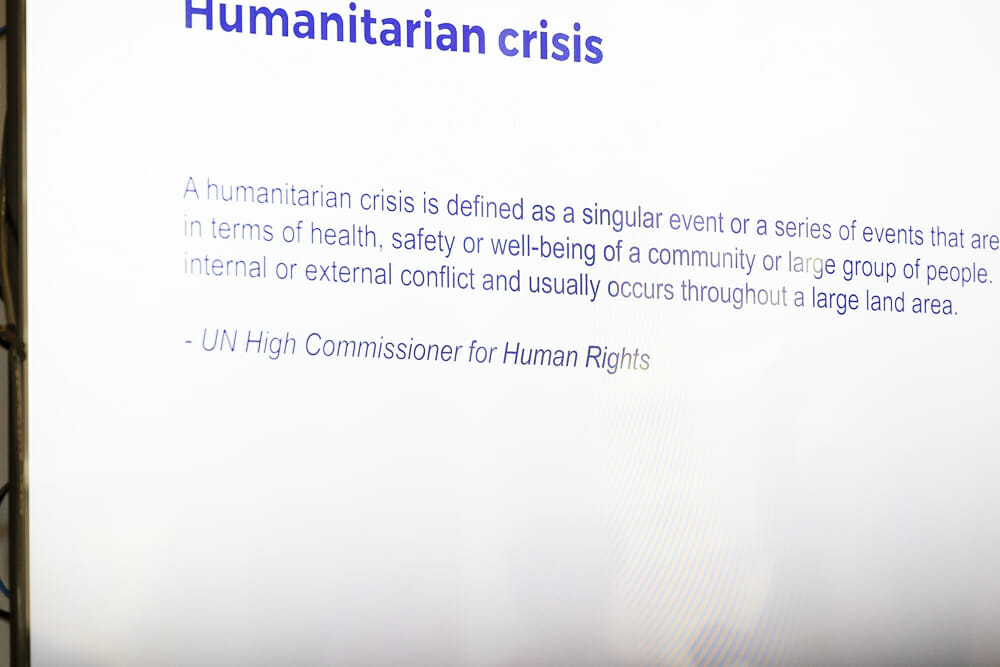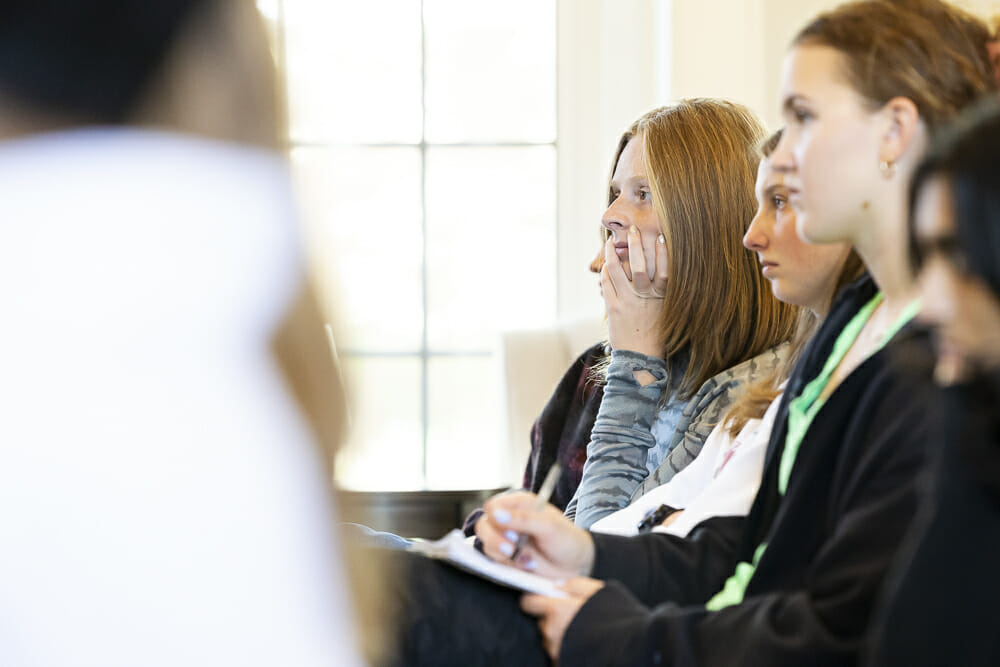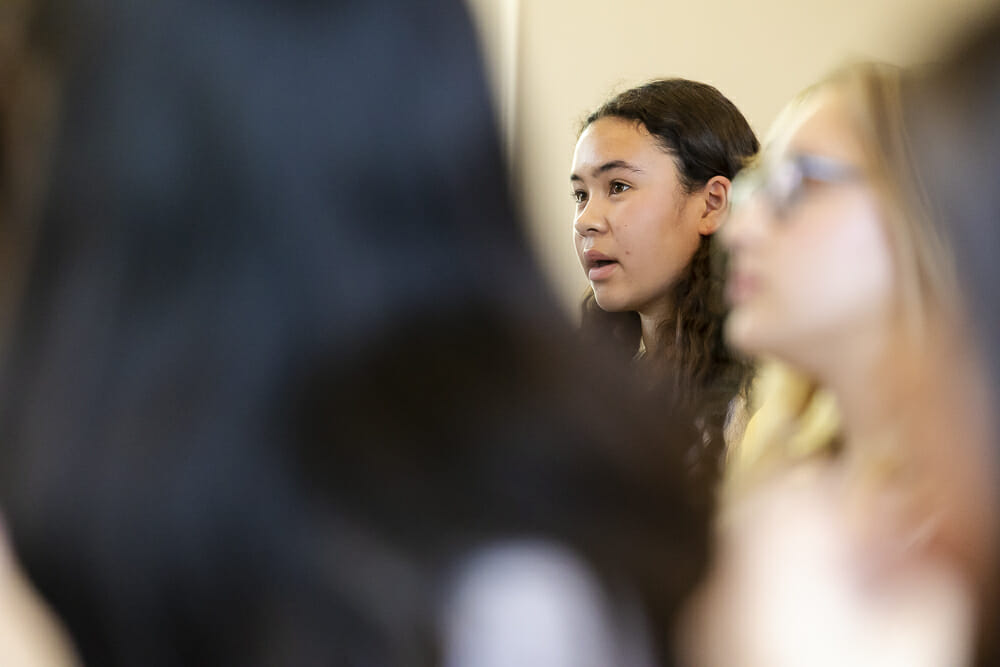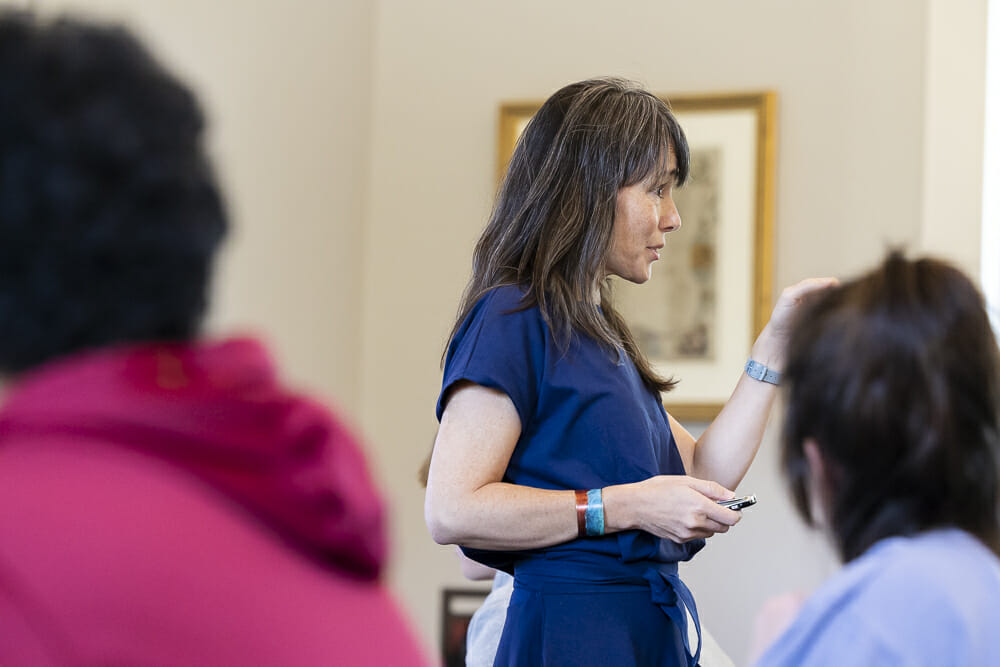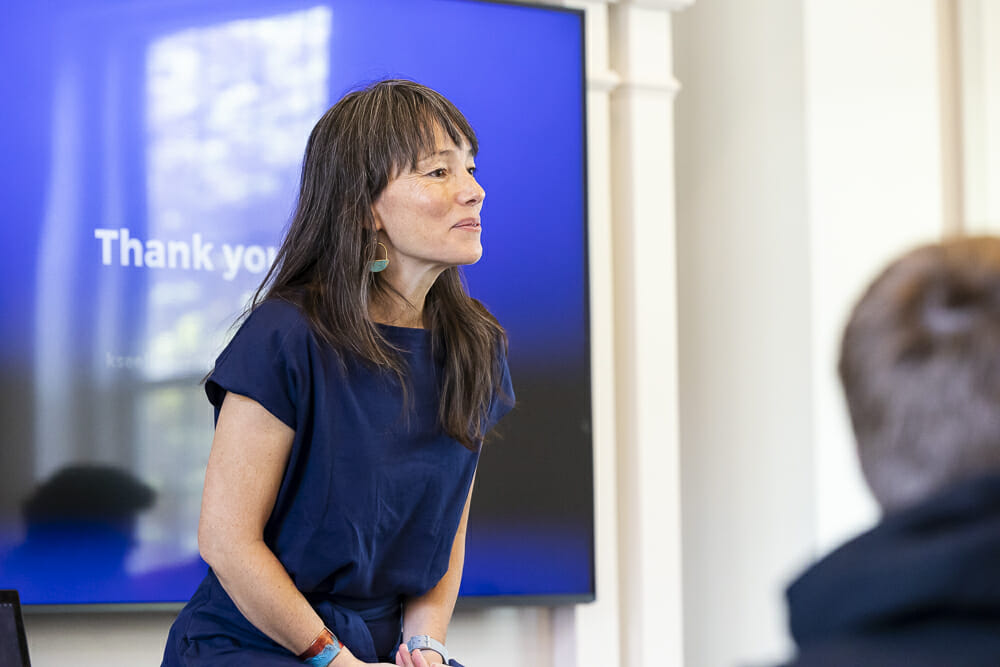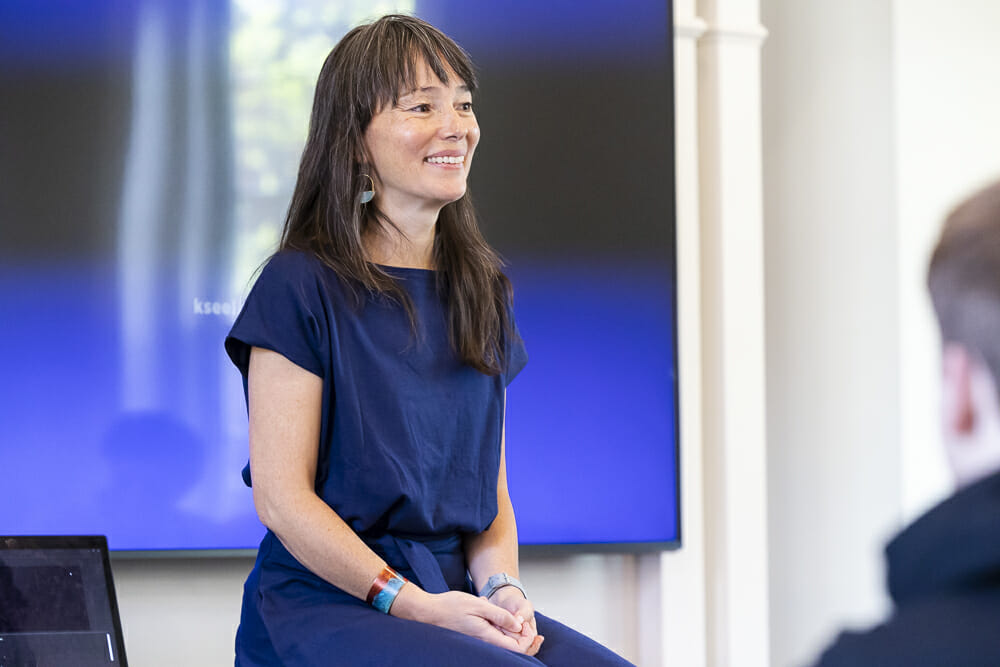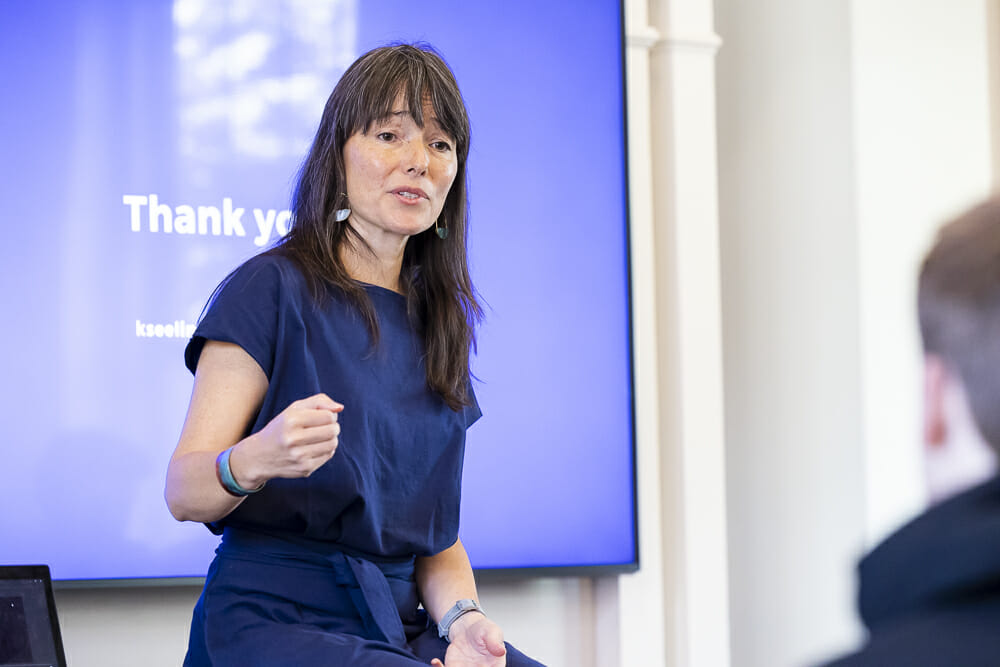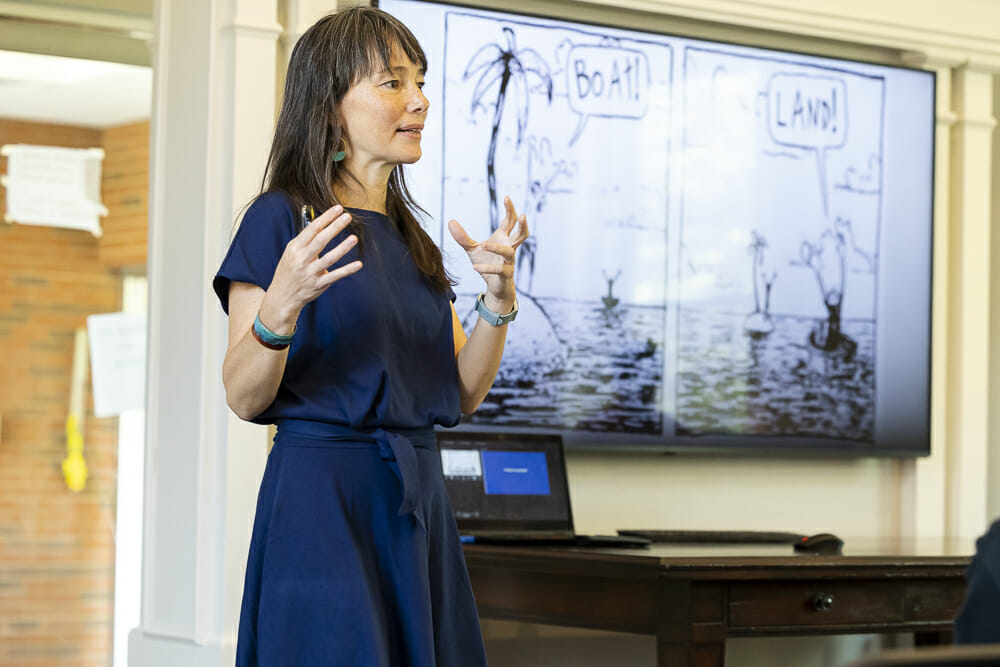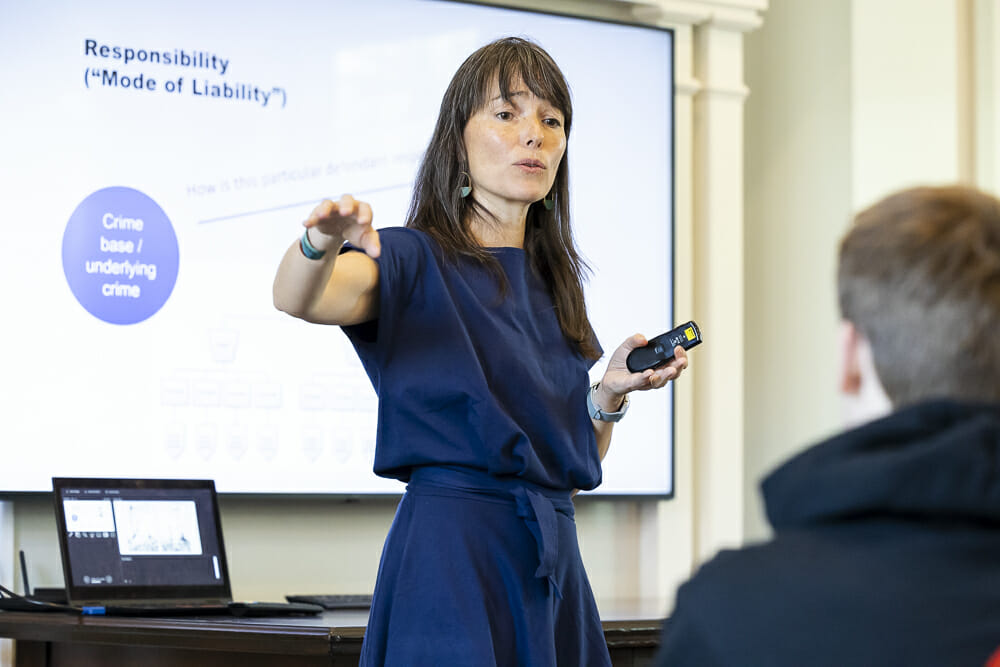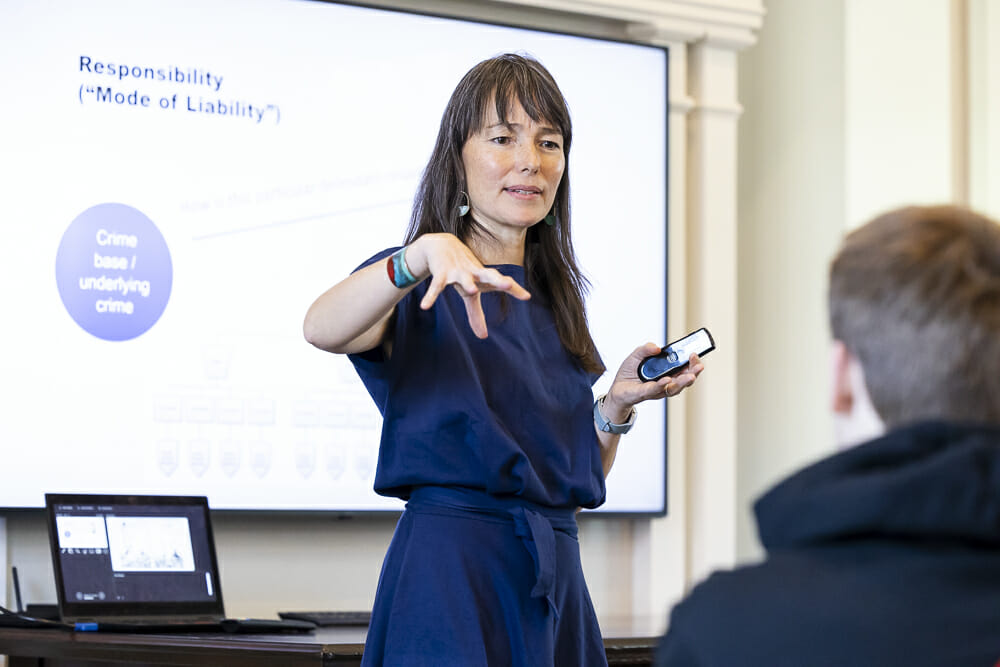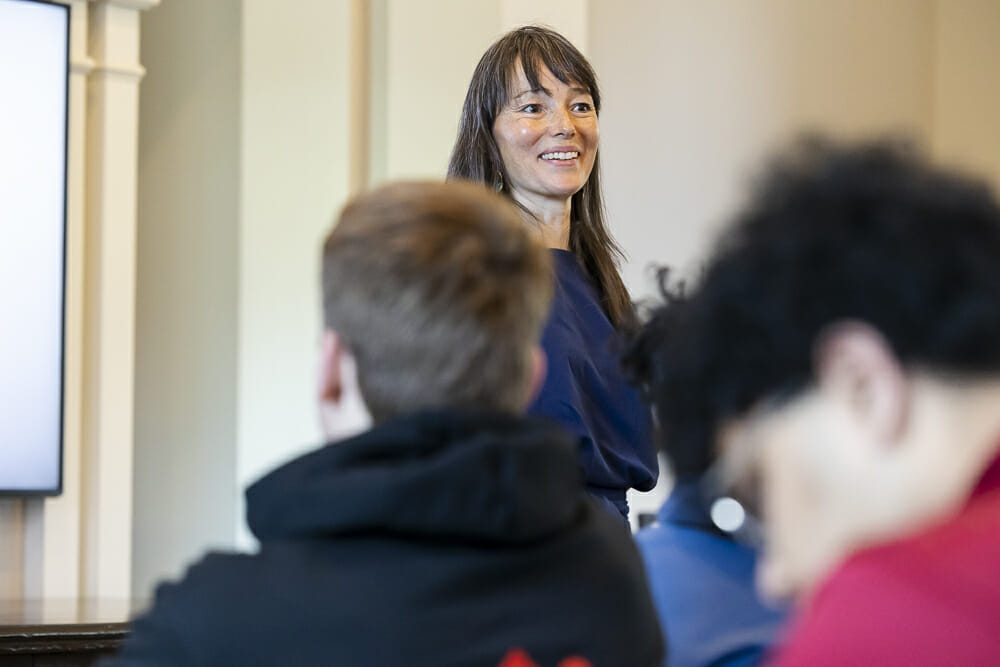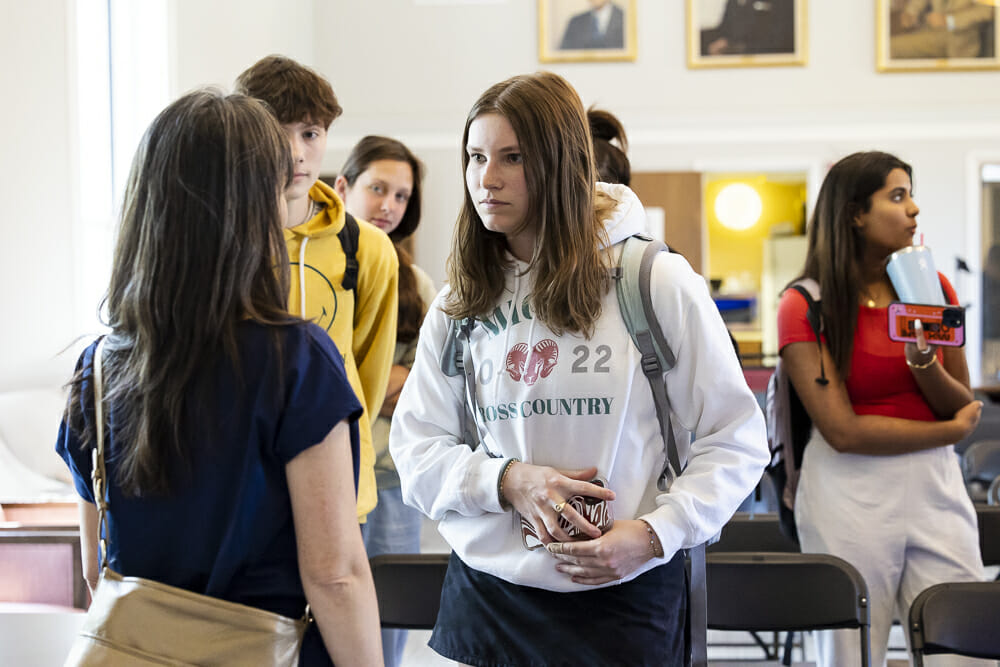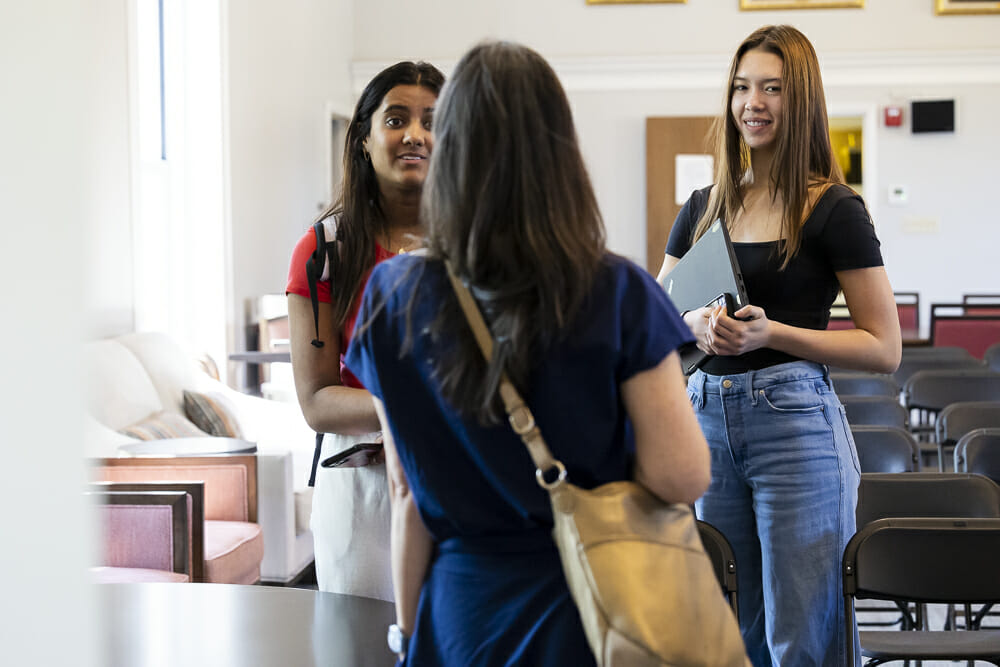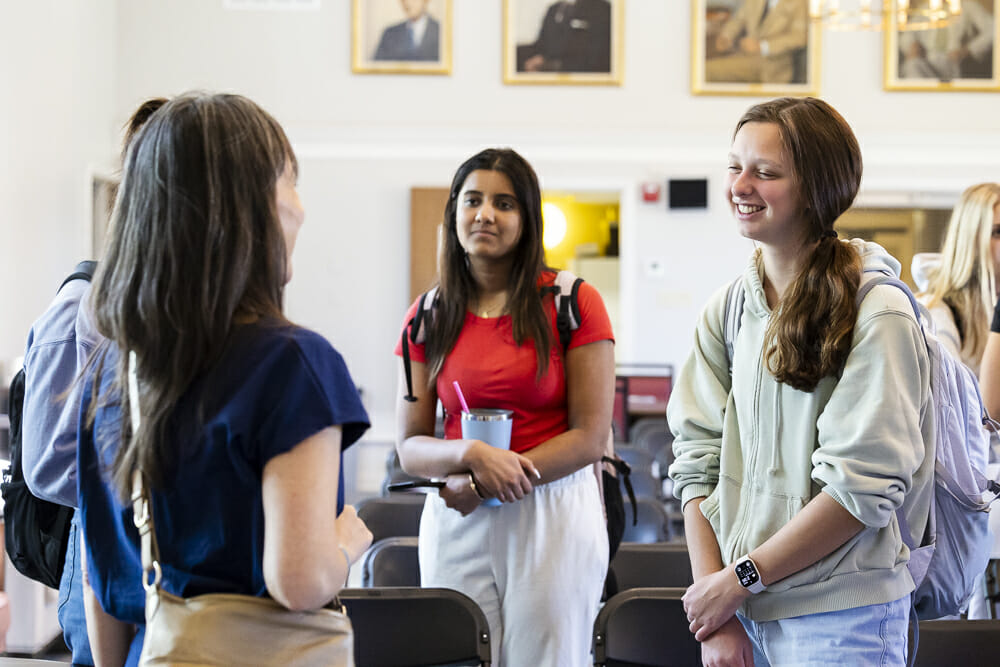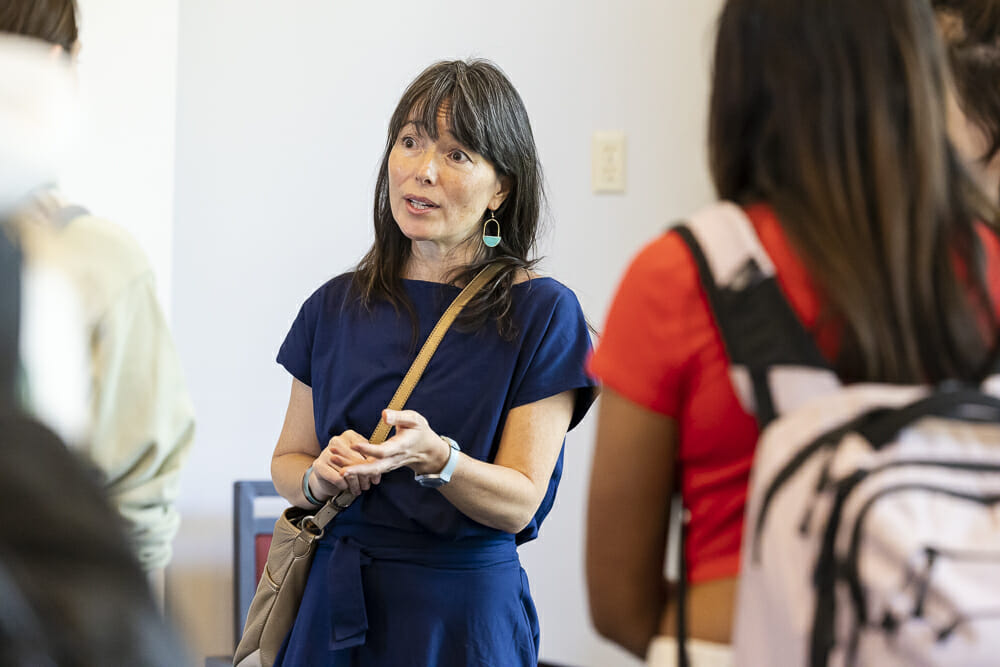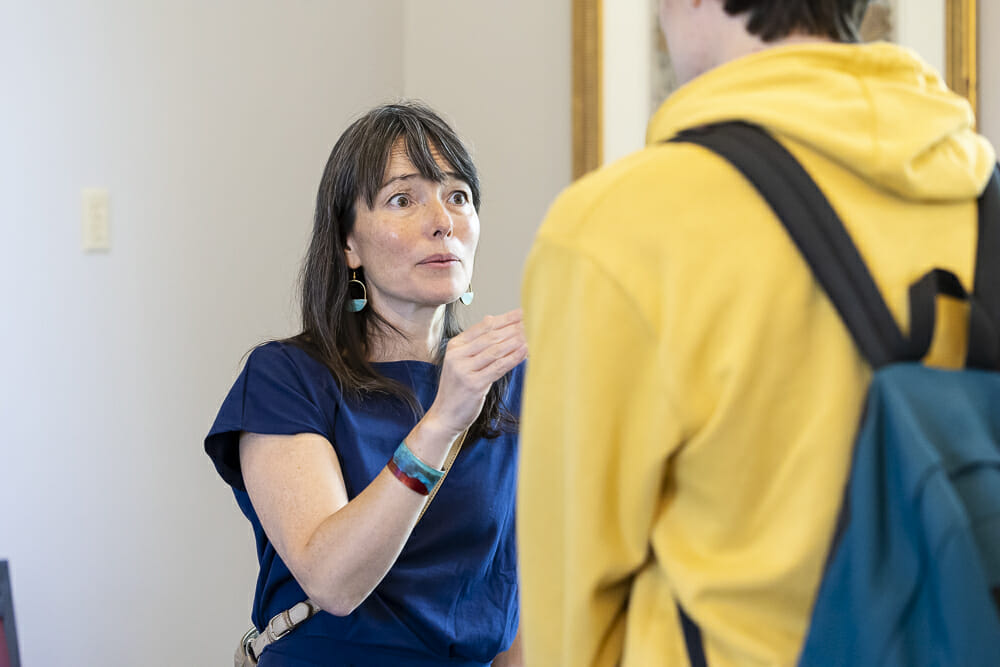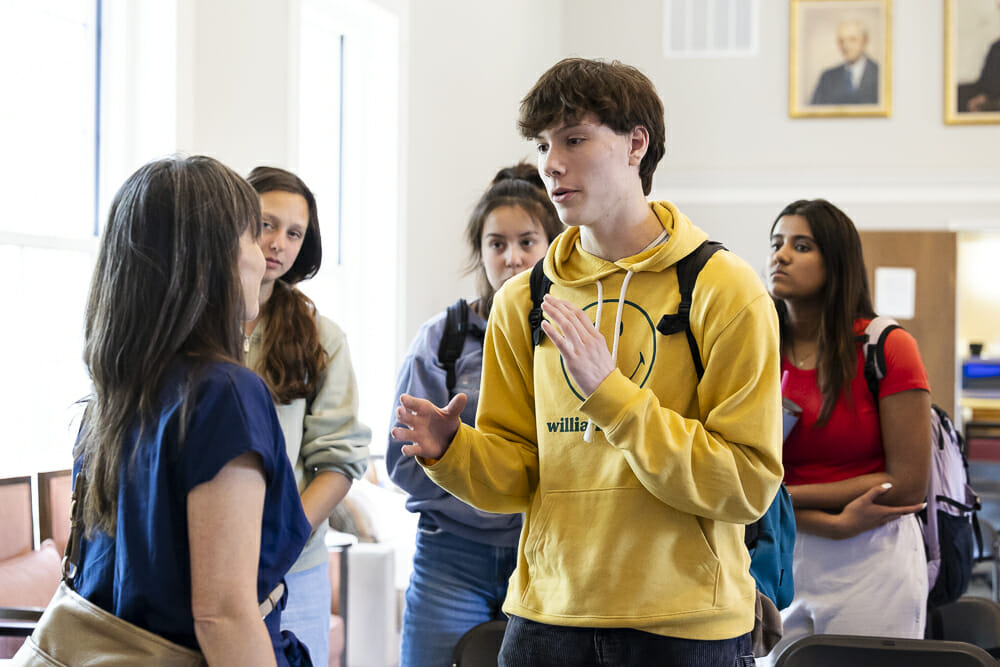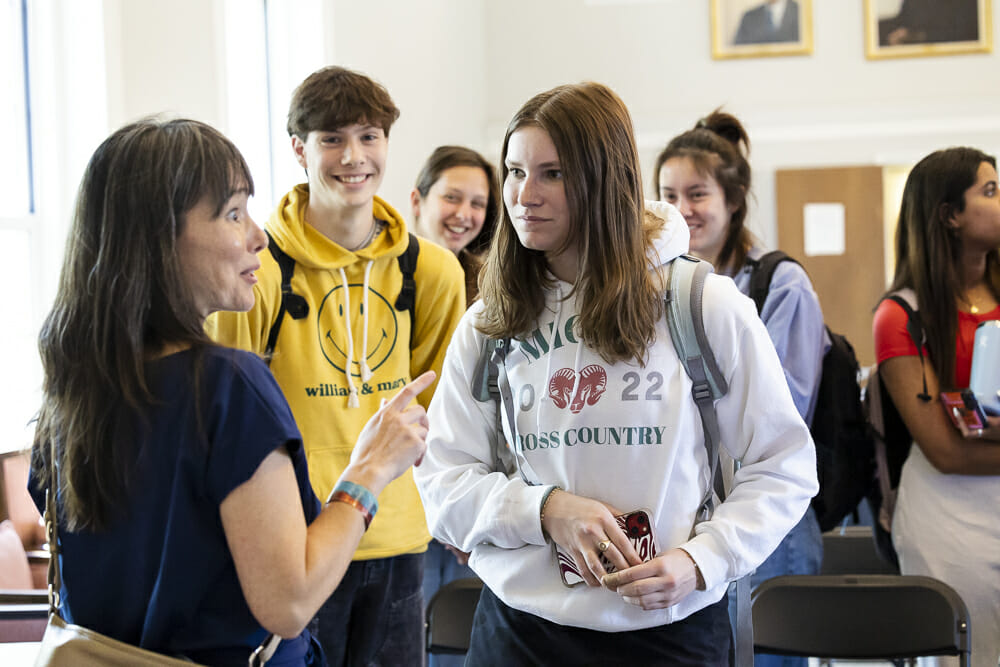Students in the Upper School History of Genocide and Human Rights elective welcomed guest speaker Kim Thuy Seelinger, a professor at Washington University, for a discussion about her work as a Special Adviser on Sexual Violence in Conflict to the International Criminal Court Prosecutor in the Hague.
The students recently wrapped a unit on the crisis in Bosnia and former Yugoslavia, where they explored the work of the International Criminal Tribunal for the former Yugoslavia (ICTY). In the wake of the conflict, the tribunal’s ad-hoc efforts led to the formal establishment of the International Criminal Court (ICC), where Seelinger currently focuses her work. JK-12 History Department Chair Carla Federman shared, “In addition to exploring moments of humanitarian crisis, this course also investigates the role that the international community has played–and continues to play–in protecting human rights. When it comes to the idea of international justice and accountability, we looked first at the Nuremberg Trials after the Holocaust and then the ICTY and ICTR (International Criminal Tribunal for Rwanda) in the 1990s. Professor Seelinger’s visit fit perfectly into our studies, and will help our students understand the continued evolution of international justice.”
Seelinger shared with the students her career path, which began at law school at New York University. She originally intended to focus on refugee protection, but when 9/11 happened, and she and her classmates witnessed attacks on Muslim and South Asian men, she switched direction. The fellowship she was associated with opted to legally represent many of those individuals, which spurred her to eventually move to the University of California-Berkeley to study international justice.
As an expert on sexual violence in armed conflict and forced displacement, she has conducted several interdisciplinary studies focused on protection and accountability and done on-the-ground evidence-gathering in Central America, the Mediterranean, Africa, and most recently Ukraine, where she has spent a considerable amount of time over the last year. This work has been integrated into global guidance for humanitarian response and the investigation of conflict-related sexual violence. In addition to serving in the ICC, she is a technical advisor for the Global Survivors’ Fund. At WashU, she directs the university-wide Center for Human Rights, Gender, and Migration at the Institute for Public Health. She will spend this summer back in Ukraine, and then will head to the Hague in the Netherlands to spend the fall advising the prosecution of cases for the ICC.
She and her team study sexual violence, displacement, protections, and barriers to survivor disclosure. In addition, they work to fill knowledge gaps for those working on the front lines so they can better support survivors. They also train the military on how to prevent sexual violence and research justice systems and how survivors interact with the different systems. Her work looks closely at the cycle of violence during crises and conflicts and its drivers. “Whatever violence pre-dates the conflict tends to persist in conflict, and unless we do something about it, follows conflict,” she said.
Perhaps her biggest area of focus, though, is in her practice of international law before the ICC. Seelinger’s presentation reminded students that the work of the ICC is not just about the accountability of the perpetrators of the conflict. It is also about caring for the survivors during and after the conflict. “If you’re serious about justice, you should really care about how you do justice. Otherwise, you’re only doing justice for yourself, not the survivors you serve,” Seelinger said.
She also encouraged the students to take action based on what they’ve learned in the course, and reminded them that individuals have important roles to play in protecting human rights and preserving international justice. “If you know what you care about, don’t worry about what graduate school you might attend but what your goal on that issue will be. Do you want to work directly with people? Are you good at interviewing people? Can you handle hard stories? Do you want to work at the policy level or do research? Figure out the issue that you love, and there will be some space for you in that work. And it doesn’t have to be in one discipline. You can pick up a number of different tools and use them together,” she said.
Genesis Starks ’24 enjoyed Seelinger’s presentation because it gave a unique perspective to the international criminal justice system. She said, “In class, we have discussed the international criminal court system through our work with various genocides, including the Holocaust, former Yugoslavia, and Armenia. It was incredible to hear about her impressive work in different countries working to research and use her practice in human rights cases around the world. As someone interested in law, It was inspirational to hear her talk about her work and how she got to be where she is today. Leaving the presentation, I had a much more accurate interpretation of the legal system of the genocides.”
Seelinger’s eye-opening presentation that included personal stories caused Esha Singh ’24 to think more deeply about the issue of genocide. “She shared insights into the work that the UN and humanitarian aid organizations have done in crises like the Rwandan genocide, which we are covering in class currently. One thing that stood out to me was her explanation of the lesser-known aspects of genocides, such as tools of war that I didn’t realize played such a major role. Specifically, social media and other technologies are used to incite violence and promote misinformation, challenging her job to prevent this. In addition, Ms. Seelinger explained how her career relates to the broader efforts to promote human rights and prevent sexual violence during conflict, inspiring me to want to learn more about how we can aid in these genocide prevention efforts,” she said.
That inspiration that Seelinger left students with is perhaps most important of all. “In a course like History of Genocide and Human Rights,” Federman confirmed, “it can be easy for students to fall into the trap of pessimism about the world and humanity. Professor Seelinger is a remarkable example of the power of an individual to make a change in the world, and the agency that people have to impact society as a whole in really important ways. Through her example, students can see what just one person can do. They don’t have to feel helpless when confronting crises in the world, and can instead be difference-makers, like Professor Seelinger.”
“This was an incredible opportunity for our students to hear from someone who is quite literally the world’s most renown expert in this field,” Federman said. “We are grateful that she took the time out of her busy schedule to speak with us about her work, her advocacy for victims, and her dedication to international justice and human rights.”
